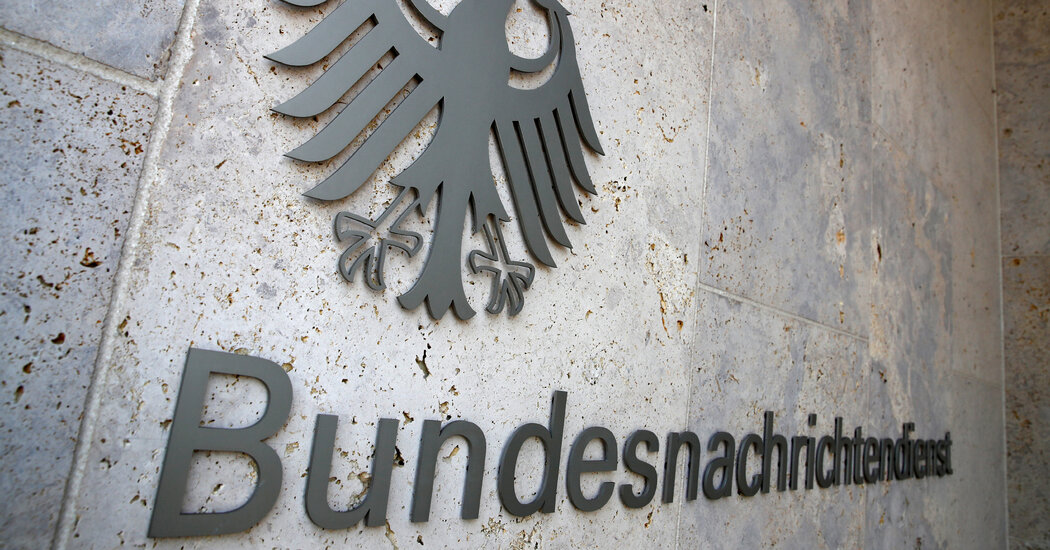BERLIN — A member of Germany’s Federal Intelligence Service has been arrested on suspicion of spying for Russia and is being charged with treason, national prosecutors said on Thursday.
Germany’s federal public prosecutor said in its statement that the suspect, identified as “Carsten L.” under German privacy laws, was accused of “passing on information he had obtained in the course of his professional activities to a Russian intelligence service.”
On Thursday, a federal judge approved keeping the defendant in custody. He was arrested last week, but German authorities have released few details. The head of the Federal Intelligence Service, Bruno Kahl, said in a statement that releasing more information would “offer an advantage to an adversary with the intention of harming Germany.”
The Federal Intelligence Service, the BND, focuses on foreign intelligence, like the C.I.A., and its mission, according to its website, is to compile “political, economic and military foreign intelligence.”
The investigation comes after a string of arrests across Europe of others accused of being Russian spies. Most of the cases involve people who prosecutors say embedded in an organization or community to enable long-term espionage or recruitment.
Last month, Norwegian authorities announced they had arrested a man posing as a Brazilian academic at a university on charges of gathering intelligence for Russia. In June, an intern at the International Criminal Court, also with a Brazilian passport, was arrested in The Hague and charged with spying for Russia. In late November, a Swedish raid caught a Russian couple who were accused of espionage. And earlier this week, Austrian investigators arrested a Greek resident of Vienna on suspicion of espionage for Russia.
The arrest in Germany may prove unusual, however, in that the accused mole was found inside the country’s own intelligence agency, raising the risk that contacts and informants within Russia may have been betrayed.
Federal prosecutors said in a statement they searched the suspect’s home and workplace.
Mr. Kahl, the BND president, described Russia as an actor “whose unscrupulousness and willingness to use violence we have to reckon with.”
A number of other Russian spies, who were not undercover agents but officially worked for intelligence services, have been rounded up and expelled in recent years, possibly making Russia more reliant on sleeper agents, especially as the Kremlin’s war effort in Ukraine has faltered. Security analysts in Europe say the arrests have also made Moscow push more aggressively for intelligence from its remaining sources.
Germany’s last case of a double agent was in 2014, when a member of the intelligence services was put in prison for eight years for espionage, mostly for passing information to the C.I.A., and for offering himself to Russian secret services.



